The fast developments in artificial intelligence (AI) are likely to have a big effect on the labor market by 2030. Through the automation of operations, the improvement of efficiency, and the rise of new paths for creative effort, the continued development of artificial intelligence technology is expected to cause significant disturbance throughout many sectors. The introduction of artificial intelligence into business operations has already caused the workforce to be changed; many sectors now deal with the benefits and challenges of this technical change.
OnworkIT’s Analysis
Based on thorough study, OnworkIT—a major source of labor trends data—has named the businesses most affected by artificial intelligence. The results of the study show the paradigm-shifting possibilities of artificial intelligence in several sectors, showing how this technology may lead to the removal of some activities, the creation of new jobs, and the reinterpretation of professional tasks. By means of data and trend analysis, OnworkIT gives a whole picture of the predicted labor market, therefore arming companies, politicians, and workers with important information as they get ready for the next changes.
Artificial intelligence changes the job scene in many ways. AI may increase output and encourage innovation, therefore helping businesses to reach remarkable degrees of efficiency. On the other hand, the automation of boring and repeated tasks might risk those jobs counting on physical exercise or basic, rule-driven activities. AI’s ability to do complicated analyses and base decisions on facts changes high-skilled jobs as well. Workers will thus have to pick up fresh skills and adapt to creative methods
It is certain that artificial intelligence will greatly change the type of work going into 2030. Handling the evolving job market needs an understanding of the areas most likely to be touched and a preparation for these changes. The results of OnworkIT provide companies and workers equally a helpful road map for estimating the effect of artificial intelligence and ensuring a flawless change.
Onworkit’s Analysis: Sectors Most Likely to be Impacted
Based on the most current study from onworkIT, the most vulnerable areas to AI-driven improvements by 2030 have become clear. Among the several companies covered are industry, retail, finance, healthcare, and transportation. These firms greatly count on artificial intelligence integration and automation for several different reasons.
Industrial Sector
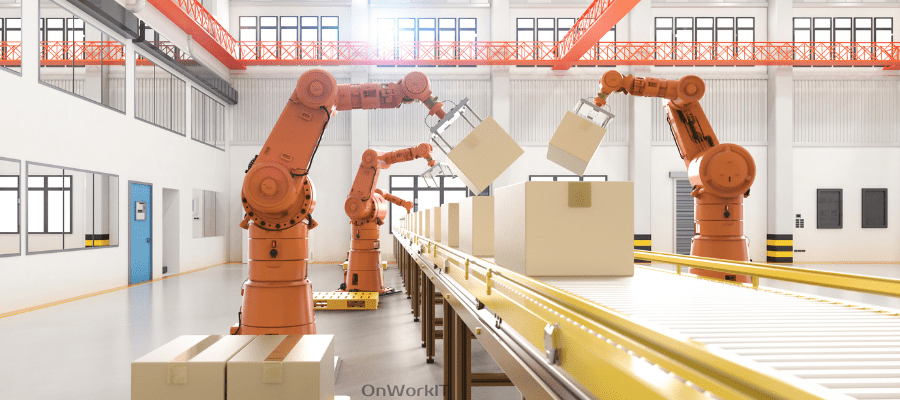
The industry sector leads in acceptance of artificial intelligence because of its great stress on consistent, exactly based processes. By means of AI-driven robots and machine learning algorithms, industry production will be much higher, running costs will be lowered, and human mistakes will be removed.
Many jobs once held by human workers are now under risk of being replaced by artificial intelligence.
Likewise, as artificial intelligence technologies hit front stage, the retail business is going through a basic change. Artificial intelligence’s data analytics help stores to streamline supply lines, change customer experiences, and better watch supplies. Growing and perhaps help to lower demand for human cashiers and support experts include AI-powered customer care workers and automatic buying systems.
Banking Sector

The banking sector also shows great AI application. Artificial intelligence finds use in financial services in many different ways, from computer trade and scam detection to customer service and credit score. AI is a useful tool for financial companies that helps to refresh the job market in this industry as it can study huge amounts of data at hitherto unheard-of speeds.
Healthcare Business

Artificial intelligence has a wide effect on the healthcare business involving patient tracking, treatment planning, and testing tools. AI-driven systems may review medical data to help with illness diagnosis, patient result prediction, and even job happiness usually performed by the medical team. This integration improves healthcare services as well as difficulties for current work standards.
Transportation Industry

At last, artificial intelligence is being used more and more in the transportation sector, especially in relation to driverless cars and AI-driven services. Along with autonomous delivery drones, self-driving cars and trucks will change the transportation scene and maybe lower the need for human drivers and organizational support.
Although artificial intelligence offers various benefits in many different sectors, according to OnworkIT’s study, it also stresses the importance of worker flexibility and upskill to counter the bad effects of automation on jobs.
Job Changes in Prospect: Anticipated Shifts and Transformations
The expansion of artificial intelligence (AI) by 2030 is probably going to cause major changes in the job scene. Companies which mostly rely on everyday operations will be at the head of potential change as artificial intelligence technology improves. Usually, technology is supposed to be bad for assembly line workers, data entry clerks, and normal office jobs. AI systems are ideal for these tasks because of their speed and accuracy; they assist to greatly reduce the requirement for human labor in these sectors by thus enabling these occupations.
AI Oriented Employment
This change will thus lead to the growth of new, AI-oriented employment rather than job loss. Demand for artificial intelligence and robotics workers will grow as companies adopt increasingly difficult technology. Professionals in robotics engineering, data science, and artificial intelligence—among other fields—are set to grow quickly. These will be in charge of creating, guiding, and improving artificial intelligence systems to ensure their functionality. For instance, a data scientist would be quite important in understanding the huge amounts of data produced by artificial intelligence systems to guide business decisions and strategies.
Replacements Of Tasks not Jobs
Moreover, established jobs possibly will evolve to add artificial intelligence knowledge. Customer support agents may hire AI-powered robots for simple questions so they may focus on more challenging customer problems. Marketers may also use artificial intelligence to study consumer data and change operations. Faster and more accurate assessments made possible by AI-assisted testing technologies might help medical workers improve their field-of- expertise.
Basically, new possibilities created by artificial intelligence are expected to revolutionize the employment market. Even if many old jobs may vanish or fade. Managing this shift will mostly depend on equipping the workforce with new skills to meet the demands of a society heading toward artificial intelligence. As we go toward 2030, the workplace will definitely change and clearly show the major influence of artificial intelligence in several spheres.
Sectors Expected to See Significant Job Changes
The most current Onworkit analysis indicates that by 2030 artificial intelligence (AI) is expected to affect several sectors. Among the sectors most prone to see notable employment shifts are industry, healthcare, finance, retail, and transportation. Already in the early phases of artificial intelligence integration, these sectors are likely to grow in the following years, therefore causing employment losses as well as new job prospects development.
Assembly line Workers, Quality Control Testers, and Service Technicians
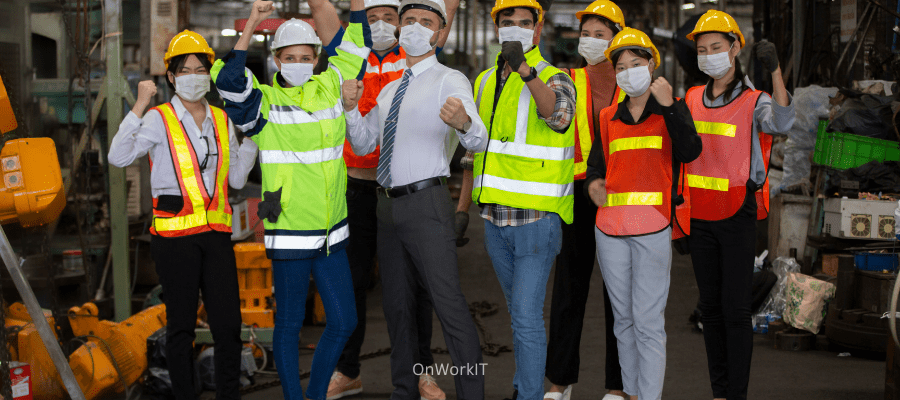
Most likely affected industrial positions include assembly line workers, quality control testers, and service technicians. Maybe lowering these standards might allow artificial intelligence-powered automated devices to do daily chores faster and more precisely. As companies concentrate on using artificial intelligence to increase manufacturing processes and product quality, demand for robotics engineers, data analysts, and artificial intelligence experts is likely to grow. Businesses are funding reskill initiatives to equip staff members with the required knowledge to run artificial intelligence systems.
Medical Sector
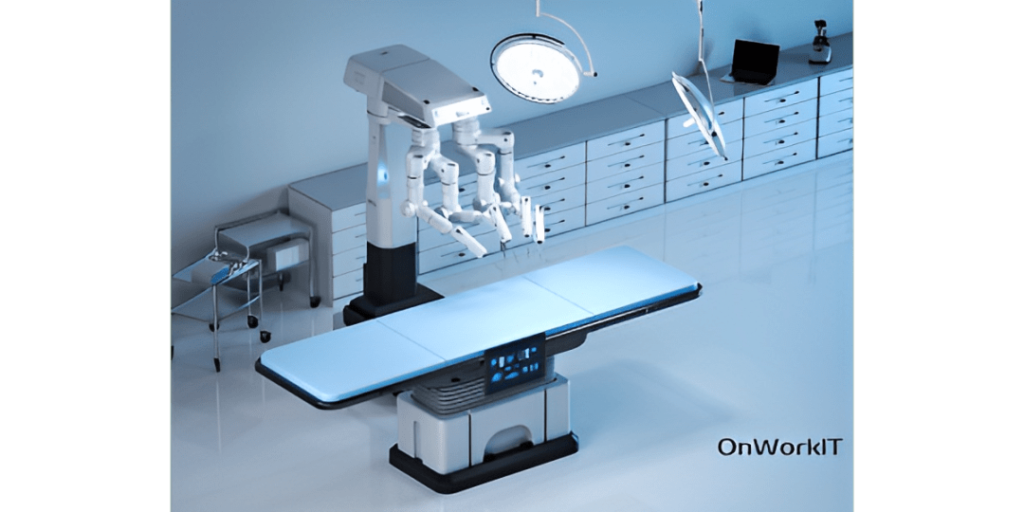
Another field where artificial intelligence is fast developing is medicine. As artificial intelligence systems get more competent of analyzing medical pictures and spotting trends, pathologists and radiologists might view alterations as unnatural. Conversely, new job prospects in artificial intelligence system administration, biological engineering, and patient data analysis are probably going to surface. Including artificial intelligence training in medical education and developing relationships with digital businesses to offer AI-powered healthcare solutions will help healthcare institutions ready for this change.
Customer Service Representatives
Furthermore much awaited by the financial sector are the changes brought about by artificial intelligence. Artificial intelligence systems affect traditional jobs such financial analysts, loan officers, and customer service representatives. By performing activities linked to data analysis, risk assessment, and client communication. Still, the sector is supposed to need data scientists, cybersecurity experts, and artificial intelligence ethics leaders. Financial institutions are continuously investing in artificial intelligence even if their main focus is on guiding their staff on responsible use of technology.
Retail Cashier and Inventory Control Jobs
Retail cashier and inventory control jobs are under danger as artificial intelligence-powered checkout systems and inventory monitoring technology spread throughout the industry. Still to come are fresh prospects in e-commerce management, digital marketing, and customer experience design. Artificial intelligence is being used by retailers to improve processes and increase customer interaction; they also provide training courses to enable staff members to adjust to new responsibilities.
Automobile Industry
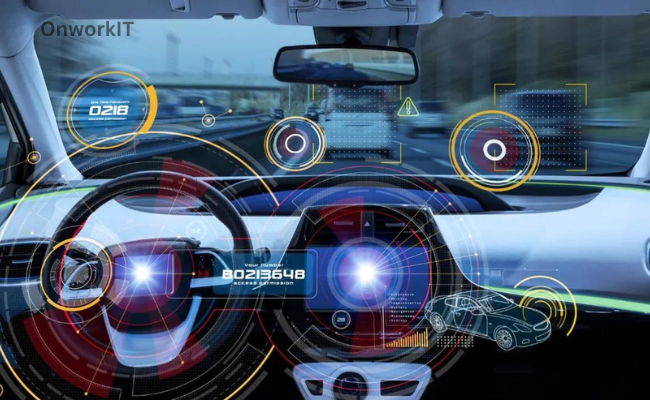
At last, artificial intelligence shipping solutions and self-driving cars will bring major disruption to the transportation sector. Jobs lost might affect truck drivers, service providers, and transportation management. Conversely, job prospects in artificial intelligence system development, truck management, and urban planning should rise. Transportation companies are looking at relationships with IT companies and providing training to equip their staff for an AI-driven future.
Achieving hitherto unheard-of levels of efficiency
Achieving hitherto unheard-of levels of efficiency, artificial intelligence (AI) has the power to revolutionize several sectors, including manufacturing. According to a McKinsey World Institute analysis, artificial intelligence may increase monthly worldwide production growth by up to 1.4%. Artificial intelligence’s capacity to do mundane activities, speed operations, and offer data-driven insights to enhance decision-making processes explains in great part this rise in productivity.
Human Labor
In the industrial sector, for instance, computer systems and artificial intelligence-powered robots can routinely do tasks quicker and more precisely than human labor. This not only lowers error rates but also releases human resources to focus on more challenging, value-added initiatives. Already proving such benefits are companies such as Siemens, whose AI-powered solutions have raised industrial speed by 20%.
Real Time Data Analysis
In terms of efficiency, the financial services sector has especially profited from artificial intelligence. Real-time data analysis of enormous volumes made possible by modern algorithms helps to find flaws, forecast markets, and enhance customer experience by means of fault identification. For instance, JPMorgan Chase reviews legal files using artificial intelligence—a procedure that used to take hundreds of hours but is now finished in seconds—so drastically lowering running costs and freeing up money for important projects.
AI Based Companies
Moreover, artificial intelligence affects occupations outside of well-known sectors. Whole new company models are likewise being shaped by technology. Companies like as Uber Freight apply artificial intelligence (AI) in the transportation sector to enhance route planning and load matching, therefore improving supply speed and lowering fuel usage. This opens possibilities for heretofore unimaginable companies and new goods.
Economic Progress by AI
The quest of more efficiency via artificial intelligence yields more economic progress. The International Monetary Fund (IMF) projects artificial intelligence will boost the world economy by 2030 with $13 trillion added. More efficient businesses might start up operations more successfully, save money, and provide their customers better goods and services, therefore generating more economic activity and employment in hitherto unexplored sectors.
The capacity of artificial intelligence to increase output in many different sectors is overall very important. By automating labor-intensive jobs, streamlining difficult processes, and fostering creativity, artificial intelligence is projected to revolutionize contemporary organizational structures. And propel notable economic development. Businesses who have already put AI-driven efficiency gains into use show early proof of the revolutionary effect this technology can have on the world labor market and economy.
Percentage of Jobs Potentially Affected by AI
With various studies forecasting the amount of employment that might be affected, artificial intelligence (AI) is expected to have a transformative impact on the labor market by 2030. According to a McKinsey Global Institute estimate, by 2030, automation and artificial intelligence breakthroughs may cause 375 million workers worldwide to transfer employment. This represents around 14% of the global workforce. Nonetheless, the impact should vary substantially depending on the sector and locality.
Industrial Sector
In the industrial sector, for example, up to 60% of employment might be automated, effecting occupations. Such as assembly line workers and machine operators. On the other hand, the healthcare industry may have only a little impact, with automation of routine processes. Such as data input and early detection influencing around 20% of jobs. With 30-40% of jobs—including middle-office operations—vulnerable to automation, the financial services industry may experience intermediate levels of transformation.
Regional Variations
Regional variations exist as well. Because of their more thorough integration of artificial intelligence technologies, industrialized nations such as the United States and sections of Europe may incur more in terms of job losses. While emerging nations may have delayed rates of automation. The impact might still be significant due to diverse economic systems and larger workforces.
Certain populations also encounter inequity. Younger individuals, who are more tech-savvy and adaptable, may find it simpler to transition into new careers. Elderly laborers, on the other hand, may struggle to learn and adapt to new technologies. Furthermore, variations in educational attainment may influence the degree of distress that job relocation causes for certain demographic groups. While individuals with less education may face more job losses. On other hand those with higher levels of education are more likely to investigate new professions created by artificial intelligence.
Although artificial intelligence creates new opportunities, its impact on employment displacement will be unequal, necessitating unique government initiatives to manage the transition.
New Employment Opportunities Arising from AI
Artificial intelligence (AI) is expected to fundamentally alter the employment market by 2030 by providing a wide spectrum of fresh ideas for many different industries. Although some present professions may go extinct. Artificial intelligence is predicted to inspire the founding of new businesses and career pathways. Reskilling and upskilling have to be deliberately sought in response to this disruptive wave to adequately capitalize on these new prospects.
Developments in artificial intelligence might greatly impact many companies, including those in information technology, banking, and healthcare. Medical data scientists and artificial intelligence healthcare specialists will be highly sought for as artificial intelligence. They are expected to improve diagnosis accuracy and cut repeated effort in the healthcare sector. These professions, which stress the need of specific training courses, will need mastery with artificial intelligence techniques and medical procedures.
Artificial intelligence is changing the way banks manage risks, spot fraud, and interact with customers.
Automated Trading System

The expansion of automated trading systems and AI-powered financial coaches will surely provide job opportunities for algorithmic traders and artificial intelligence advisers. Emphasizing the need of ongoing education and liberty, experts in various fields would have to mix specialized training with financial knowledge.
Information Technology

The information technology industry is highly sought after for data scientists, machine learning experts, and artificial intelligence technologists; this will probably help artificial intelligence to flourish. Constructing, running, and supervising artificial intelligence systems requires three key skills: high degree of coding, data analysis, and system architectural understanding. Thus, educational institutions and corporate training programs have to focus more on AI-centric courses. If we are to equip the workforce for needs in the future.
Career Opportunities
Including artificial intelligence into daily business activities will also provide fresh career opportunities in artificial intelligence ethics, compliance, and maintenance. Experts in artificial intelligence ethics and compliance authorities will be obliged to ensure that AI systems run under moral and legal limits. Legal systems and artificial intelligence techniques have to be known for these stances.
If workers are to take advantage of these growing prospects, they must aggressively look for chances to reskill and upskill. Working together, governments, companies, and education can create effective training courses that equip individuals with the skills required in an AI-driven workforce. Encouragement of a constant love of learning and independence will help employees to succeed in their jobs. Therefore insuring both social development and financial success.
Conclusion: Preparing for an AI-Driven Future
Artificial intelligence (AI) is projected to significantly impact the labor market by 2030 by disseminating a variety of fresh ideas across several industries. Artificial intelligence is expected to encourage the formation of new businesses and career pathways. Even if it makes some current jobs obsolete. If one desires to properly capitalize on these new opportunities, retraining and upskilling must be aggressively undertaken in response to this disruptive wave.
Artificial intelligence in the workplace has the potential to provide a variety of benefits in the long run. Artificial intelligence (AI) has the potential to improve people’s lives and the economy. By increasing efficiency and creating new job possibilities. People, organizations, and decision-makers can ensure that we utilize artificial intelligence correctly. While avoiding its risks by taking action now and building the framework for a prosperous and technologically sophisticated future.
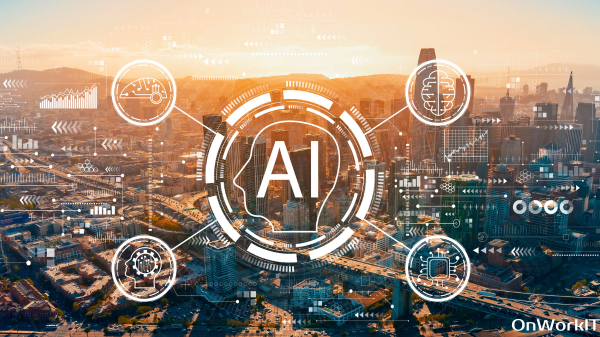


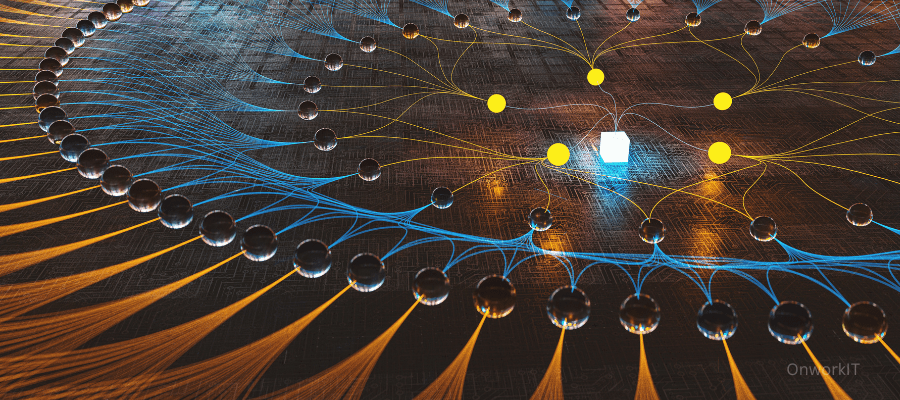
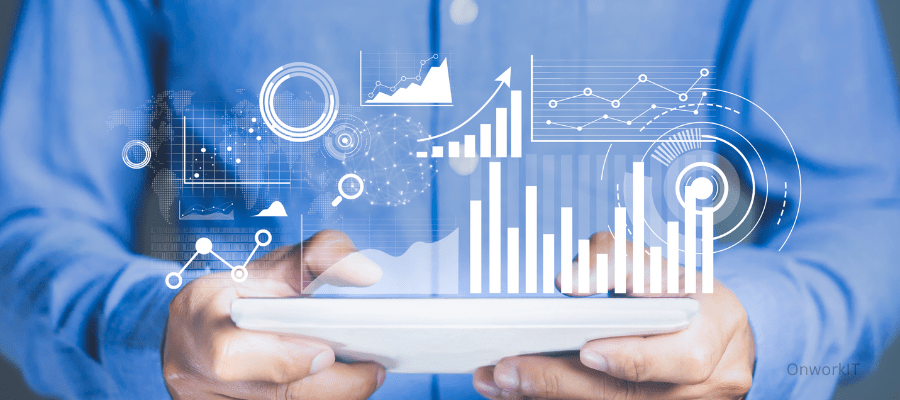

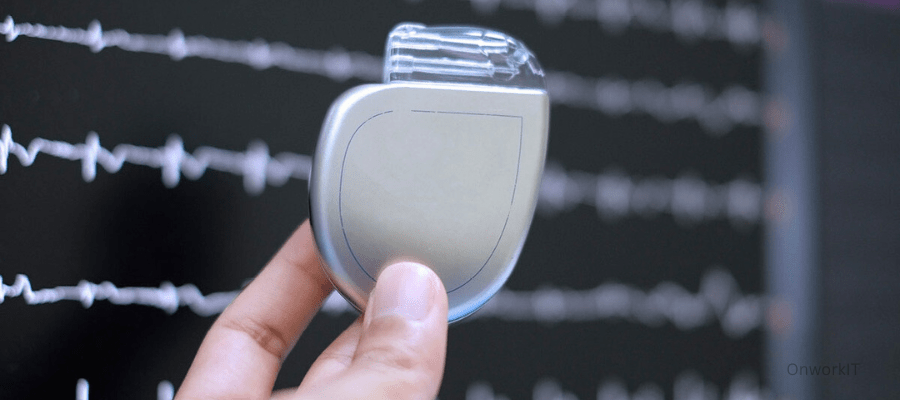

3 thoughts on “Artificial Intelligence Could Shake Up Job Market by 2030, Everything we need to know now”